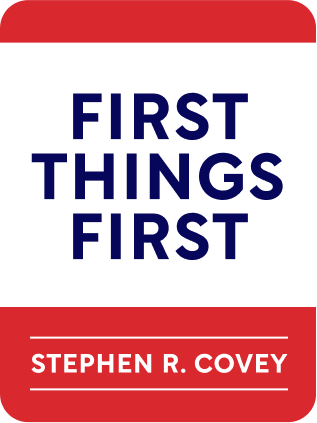

This article is an excerpt from the Shortform book guide to "First Things First" by Stephen R. Covey. Shortform has the world's best summaries and analyses of books you should be reading.
Like this article? Sign up for a free trial here .
Have you ever wondered why you can’t find your peace no matter what you do? How do you figure out what’s standing in the way?
According to Stephen Covey, there are three factors that might be the reason why you can’t find your peace. These include unrealistic expectations, lack of courage, and pride.
Keep reading for Steven Covey’s advice on how to find your peace in the face of these obstacles.
Find Your Peace in the Face of Obstacles
When you base your priorities on true north principles and put first things first, you find four different kinds of peace:
- The peace that comes from fulfilling your four human needs: living, love, learning, and leaving a legacy.
- The peace that comes from developing your four human endowments: self-awareness, conscience, independent will, and imagination.
- The peace that comes from cooperating with others instead of competing.
- The peace that comes from living according to your conscience.
Obstacles to Peace
There are several roadblocks to peace to be aware of: unrealistic expectations, lack of courage, and pride.
Unrealistic Expectations
Unmet expectations are one of the greatest sources of frustration in day-to-day life. When you have the expectation that you’ll check every task off your to-do list, that you won’t run into difficulties, or that everyone will agree with your ideas, unexpected issues or interruptions cause frustration. You see the people around you as problems. Conversely, when you see your daily plan as a roadmap rather than a checklist, you see problems as opportunities to create better systems and empower others.
If you want to find peace, you need to mitigate frustration by changing your expectations. If you work with others toward a shared vision and live a principle-centered life, your expectations will become more realistic. You can also examine particular frustrations to identify the unrealistic expectations at their source.
Lack of Courage
When you lack courage, you keep doing things the way you’ve always done them, basing decisions on society’s priorities rather than your own, or not basing decisions on priorities at all. On the other hand, courage allows you to listen to your conscience and make decisions based on your principles.
You can develop courage by achieving your goals, no matter how small. For instance, your goal could be to get out of bed the first time the alarm goes off. Each time you set a goal and meet it, or keep a promise, you build your confidence. This confidence develops into courage.
Pride
Pride, in the sense of having too large of an egol, is the biggest hindrance to leading a principle-centered life.
If you have too much pride, you:
- Spend your time and energy comparing yourself to others.
- Judge yourself by the number of friends you have and the praise you receive.
- Value your contributions based on whether you contribute more than others and whether others recognize you for your contributions.
- Fail to listen to your conscience.
To eradicate your pride, develop your humility. Follow the steps of the First Things First system to understand your true priorities, and focus on strengthening your relationships and empowering others.
Characteristics of a Principled Person
If you want to find true peace, you need to be a principle-centered person. To be a principle-centered person, focus on developing the following characteristics:
- Spontaneity: you follow your plan, but see detours as an adventure rather than a frustration.
- Strong relationships: you prioritize people over the items on your to-do list.
- Cooperation: you achieve more working with others than by yourself.
- Growth mindset: you continually learn from people, books, and experience, and you know that growth comes from humility.
- Contribution: you aim to improve the lives of others as well as your own.
- Achievement: you regularly acquire new skills, both professional and interpersonal, to achieve greater results.
- Resilience: you’ve established paradigms and systems to handle problems calmly and thoughtfully.
- Knowledge of when to quit: you use your principles, rather than external factors, to decide when you need a break or need to reprioritize.
- Balance: you work to meet your physical, social, mental, and spiritual needs in a balanced way.
- Integrity: you keep your promises to yourself and others.
- Focus on the Circle of Influence: you concentrate on what you can control or improve.
- Optimism: you see possibilities rather than problems.
- Joy: you don’t beat yourself up when you make a mistake and you live in the present.
Ultimately, learning to listen to your conscience and act on its guidance is the single best thing you can do to manage your time well, live a higher-quality life, and find lasting peace. One of the most powerful questions you can ask your conscience is, “What can I do to make a difference?” The answer to this one question may dramatically alter how and in what you invest your time.

———End of Preview———
Like what you just read? Read the rest of the world's best book summary and analysis of Stephen R. Covey's "First Things First" at Shortform .
Here's what you'll find in our full First Things First summary :
- How to work effectively, not just efficiently
- Why you need to think more about what you're spending time on than how much time you're spending
- The 6 steps to effectively schedule and prioritize important activities






